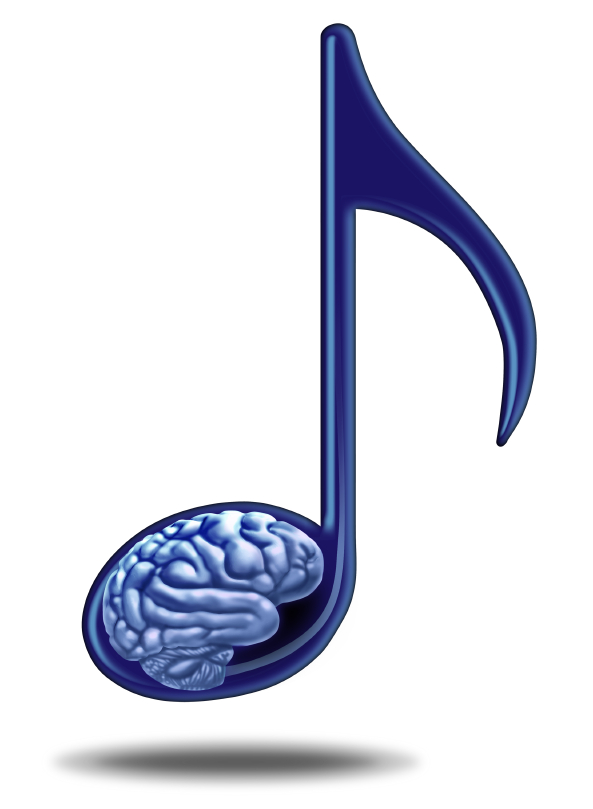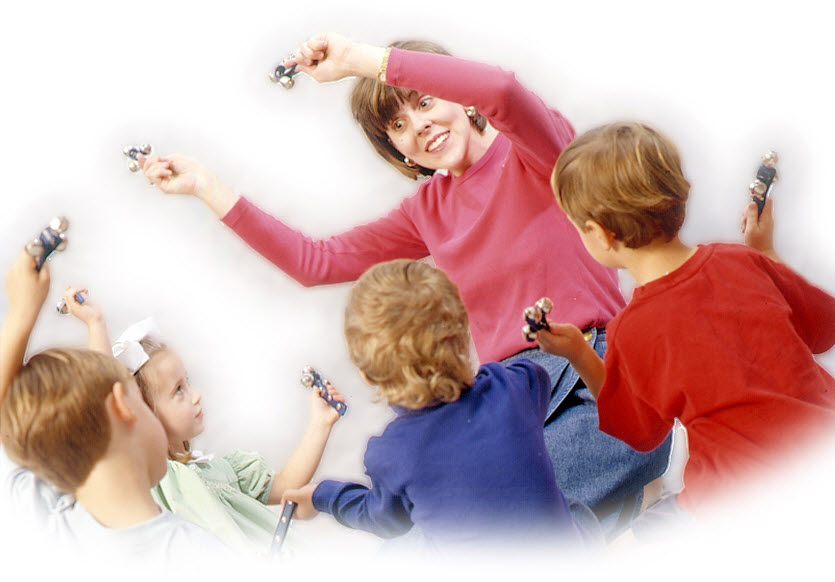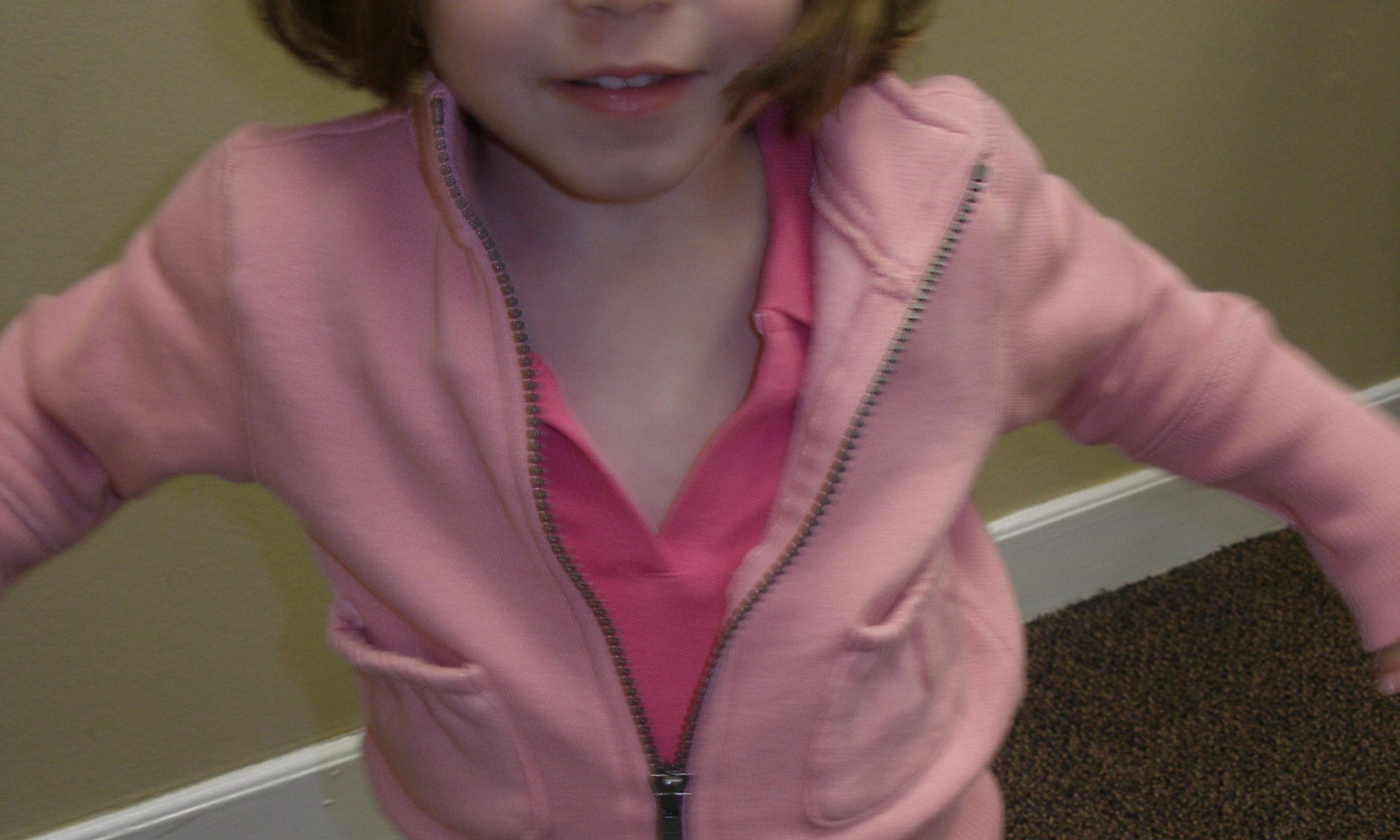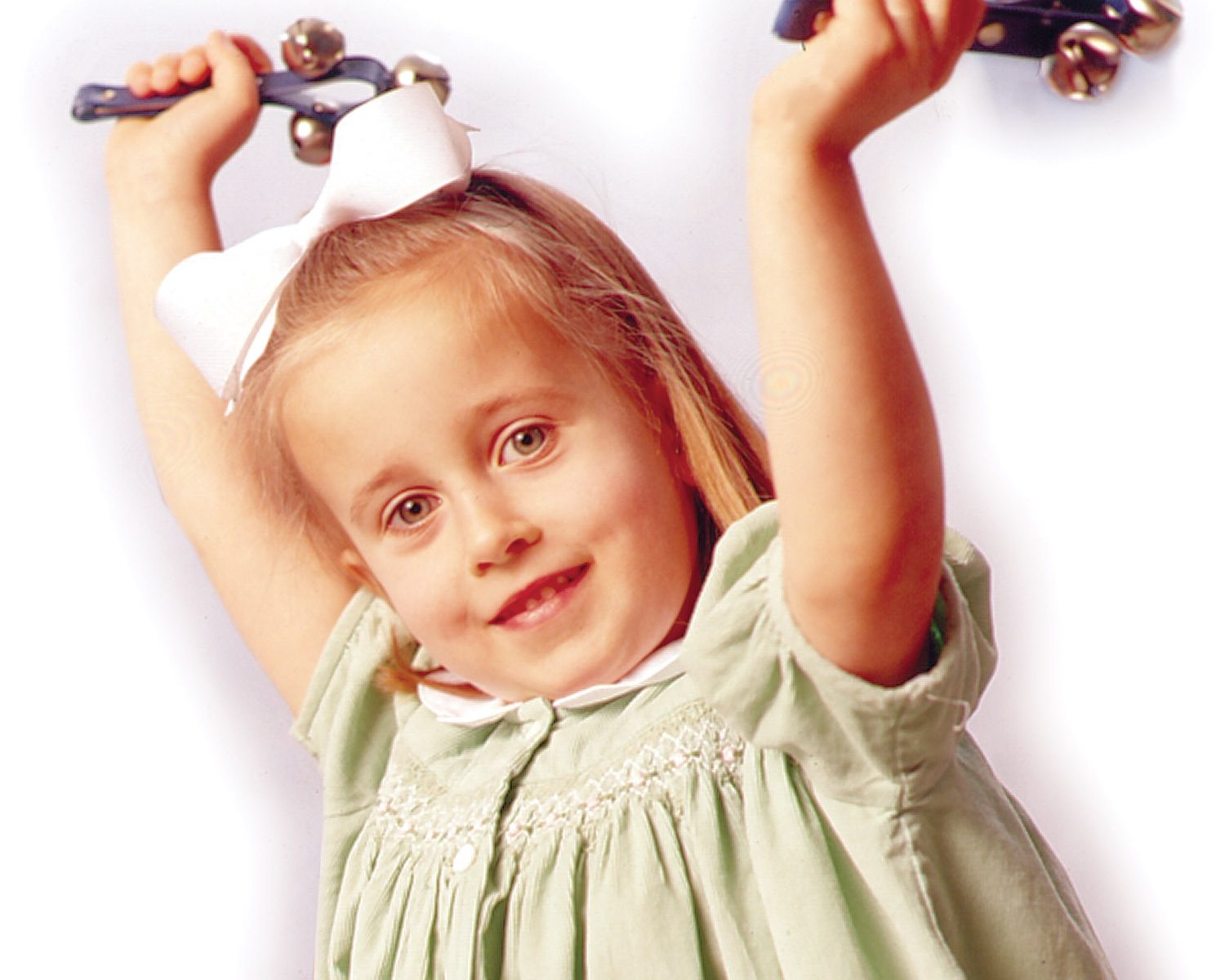 Did you know that the benefits of music include preparing a child for school? When intentionally used as part of a pre-K curriculum or preschool curriculum, musical learning can positively impact the cognitive development in children and help children of all abilities be ready to learn at any age. Here are just five ways to use music when teaching children enrolled in a preschool or pre-K curriculum.
Did you know that the benefits of music include preparing a child for school? When intentionally used as part of a pre-K curriculum or preschool curriculum, musical learning can positively impact the cognitive development in children and help children of all abilities be ready to learn at any age. Here are just five ways to use music when teaching children enrolled in a preschool or pre-K curriculum.
5 musical learning activities that support cognitive development in children
- Circle dances teach cooperation. Ringing around the rosey gives children more than a pocketful of posies. Choreographed movements require children to cooperate, move in synch with a group, and listen to and follow oral instructions.
- Identifying the specific sounds (or timbre) of different instruments teaches children auditory discrimination. The same sound discrimination used in recognizing the difference between the musical note “C” played on a clarinet verses the same note played on a piano by sound—not sight—helps children hear the minute differences between letter sounds or phonemes, which supports early literacy and language development.
- Moving to the tempo of the music teaches children to be active listeners. When children respond to the changing tempo of a song—from fast to slow—or when children move slowly when they hear the music change from staccato to legato, they are using their body movements to practice active listening skills.
- “Stop and Go” activities with music builds self-regulation skills. Children need to learn to tell their bodies what to do, when to stop, when to go, and when to move on to another activity. When playing a musical learning game of “Freeze Dance,” children learn and practice self-regulation skills by responding to the musical cues.
- Finger plays, such as “Itsy-Bitsy Spider,” help children learn to coordinate hand, finger, and wrist movements that support fine motor control and precision. Those fine motor skills will help children hold a pencil correctly, use scissors, and even tie their own shoes.
Pre-K curriculum uses musical learning

In our preschool curriculum, ABC Music & Me, teaching children includes singing, dancing, and instrument exploration. Throughout all the musical learning, teachers are laying the groundwork for school readiness. Plus, our preschool curriculum includes proven results, in spatial-temporal reasoning, self-control, and even a 32 percent gain in early literacy.

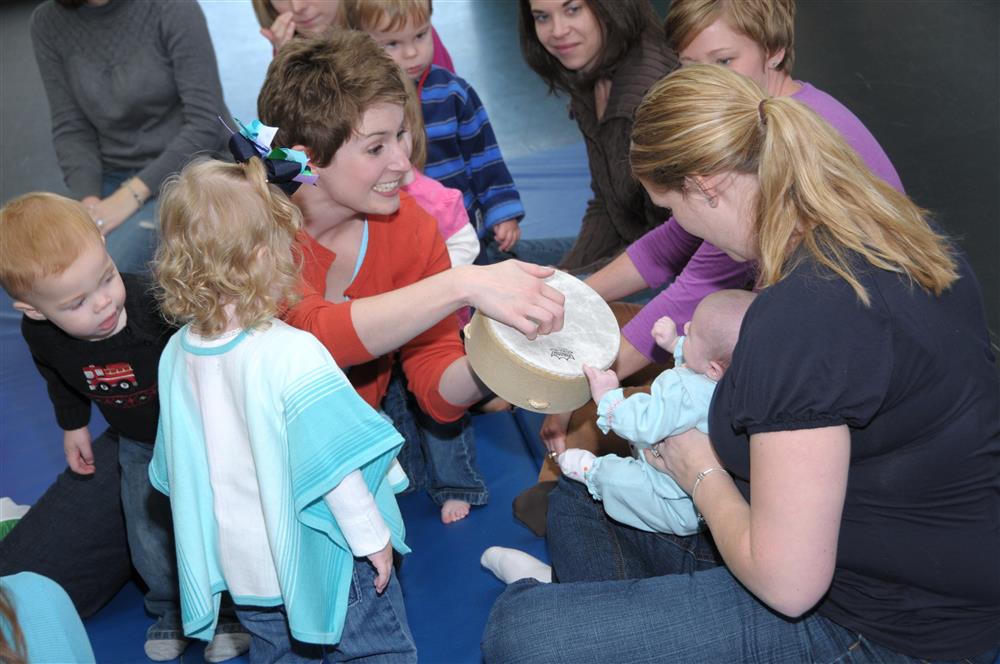
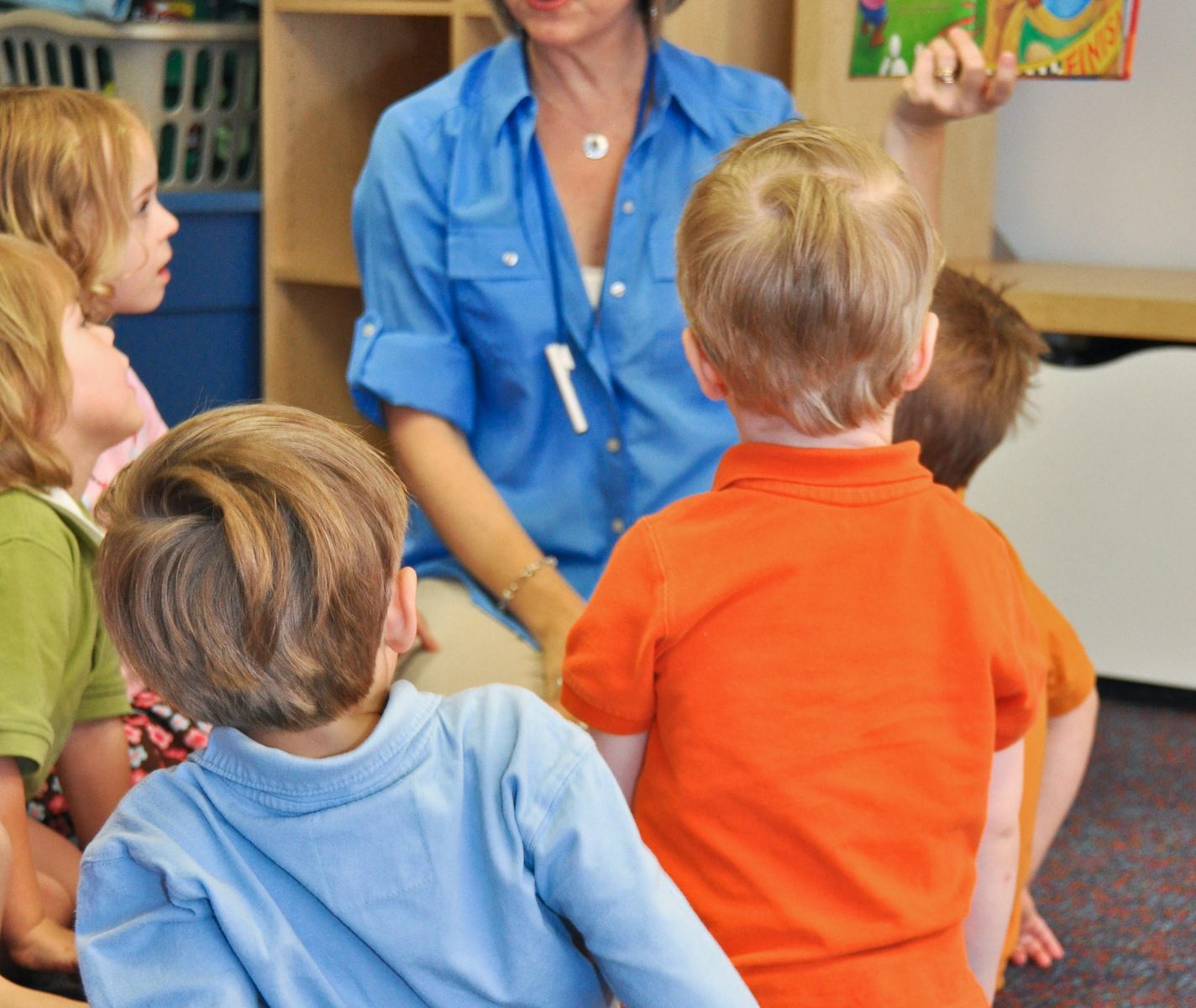
 Yes. You read the title correctly. Early childhood teachers give kids the gift of gab. Research proves it! A team of researchers at UNC’s Frank Porter Graham Child Development Institute recently published a compilation of studies that shows how early childhood educators positively impact the language development and communication abilities of infants and toddlers.
Yes. You read the title correctly. Early childhood teachers give kids the gift of gab. Research proves it! A team of researchers at UNC’s Frank Porter Graham Child Development Institute recently published a compilation of studies that shows how early childhood educators positively impact the language development and communication abilities of infants and toddlers.


